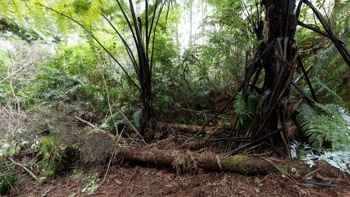A review of New Zealand Rugby governance has found the current New Zealand Rugby Union constitution and consequent governance structures “are not fit for purpose in the modern era.”
Released today, just over a week before the All Blacks kick off their World Cup campaign, the review was undertaken by a four-person panel that included former Fonterra executive David Pilkington, former All Blacks captain Graham Mourie, and experienced directors Anne Urlwin and Whaimutu Dewes.
The panel recommended two key changes:
- The creation of an independent process to ensure the appointment of an appropriately skilled, high-performing board to govern the organisation
- The creation of a Stakeholder Council to ensure the voices of stakeholders are heard and their interests represented in a collaborative forum.
Pilkington, the panel chair, said NZR in the professional era was “a large and complex business.”
“The structure it sits within was not designed for a business of this size and complexity. There is widespread recognition that change is needed to address the many challenges. We are confident that what we propose is the best route forward. The conclusions are not novel, they exist and work in other organisations and environments.
“There have been a number of reviews in recent times and it is this panel’s fervent hope that this is the last review of this type and that walk, finally replaces talk.”
The report said the panel reached its conclusions having consulted with rugby stakeholders and interested parties both in person and through a submission process.
“We have first ensured that all voices of the many stakeholders have been heard. We have travelled the country and listened. We have received and reviewed hundreds of submissions and interviewed nearly 200 people,” Pilkington said.
While the review was commissioned and paid for by NZR, it was effectively instigated by the New Zealand Rugby Players’ Association which made it a condition of returning to the negotiating table in mid-2021 when discussions about a proposed private equity deal with US fund manager Silver Lake broke down.
The Black Ferns celebrate winning the Rugby World Cup 2021 final between New Zealand and England played at Eden Park in November 2022. Photo / Dean Purcell
NZRPA did not support NZR’s first attempt to sell a stake in its commercial assets to Silver Lake – partly because it felt the terms would prove to be catastrophic to the New Zealand game, but mostly because it felt the national body had run a secretive process that had failed to observe its legal obligations to work transparently and collaboratively with the players.
The lack of astute financial analysis in regard to that first attempted deal, and the botched nature of the process to try to get it over the line, triggered widespread concern in the wider rugby community that NZR didn’t have directors with the requisite skillsets and experiences to effectively govern a sport that is almost unrecognisably different to the one it was 30 years ago.
NZRPA was also conscious that once it agreed to work with NZR in mid-2021 to try to rescope the initial deal, a successful outcome would lead to the creation of a new company that would house and manage all the commercial assets under the guidance of a separate board.
Luke Kirkness is an Online Sports Editor for the NZ Herald. He previously covered consumer affairs for the Herald and was an assistant news director in the Bay of Plenty. He won Student Journalist of the Year in 2019.
Take your Radio, Podcasts and Music with you

/cloudfront-ap-southeast-2.images.arcpublishing.com/nzme/IOROOAS35JBRFCURH64X3M3NRY.JPG)








